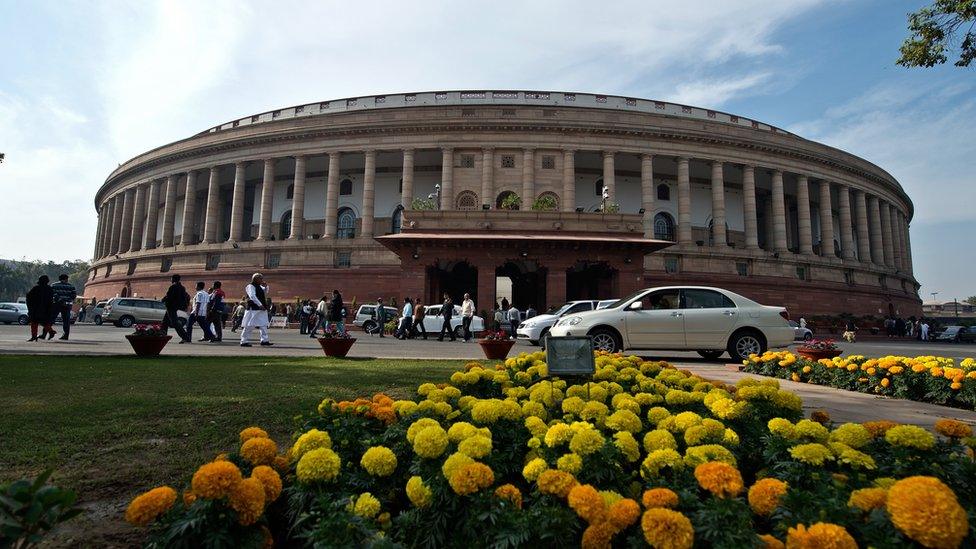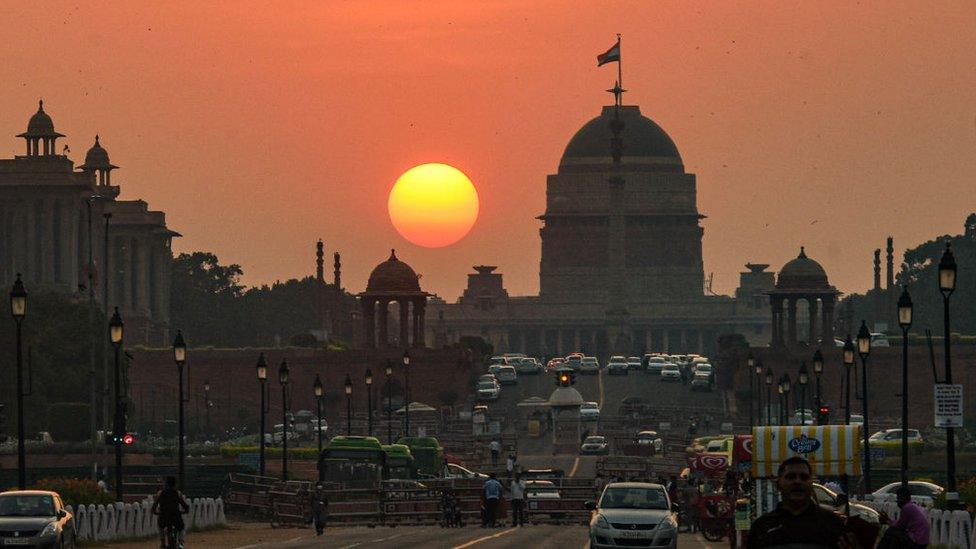Central Vista: India court clears controversial Delhi renovation plan
- Published

The existing building is nearly a century old
India's Supreme Court has allowed the government to go ahead with a renovation project that includes the construction of a new parliament.
Critics had appealed to the court to cancel the project, saying the money could be spent on people's welfare.
The government says the 200bn-rupee ($2.7bn; £2bn) project is needed to revamp the area in central Delhi which houses major government buildings.
This comes as India's economy has contracted for two straight quarters.
The court had reserved its judgement in early November saying that it would examine petitions on whether the project violated environmental and land use regulations.
"We hold that there are no infirmities in clearances given or change in land use," a three-judge bench said on Tuesday. The court also asked the environment ministry to setup smoke towers and use smoke guns at the construction site to curb pollution.
Under the renovation plan - known as the Central Vista Project - a new building will replace the existing colonial-era parliament complex; it is expected to be completed by 2022, when India celebrates 75 years of independence.
A common secretariat will be built to house various ministries of the government. Plans also include new homes for the prime minister and the vice-president.
The 3km (1.8 mile)-long Rajpath (King's Avenue), the iconic landmark where India hosts its annual Republic Day celebrations, will also be given a facelift.

The project has been embroiled in controversy, with critics expressing concerns over the aesthetics and the cost.
Congress, the main opposition party, has questioned the "absurd priorities" of the Bharatiya Janata Party (BJP)-led government over "the new, costly redevelopment plan at a time when the country is undergoing a health crisis and a contracting economy".
The government has defended its plan to revamp the iconic landmark situated in the heart of the Indian capital, saying that a new parliament building is needed as the current one dates back to the 1920s and shows signs of "distress and over-use".
They have also pointed out that there has been an increase in the number of MPs and parliament staff.
The new building, which will be larger than the current one, will have seating for 1,400 MPs, according to the Press Trust of India news agency.
Reports say it will be a three-storey triangular structure and the Tata Projects will construct the $117m (£90m) building.
On 10 December, Prime Minister Narendra Modi laid the foundation stone of the new building.
The Supreme Court had allowed the government to go ahead with the ceremony after receiving an assurance that no work would start until the top court decides on the petitions before it.
Mysterious tunnel beneath old Indian parliament
- Published7 December 2015

- Published17 September 2020
